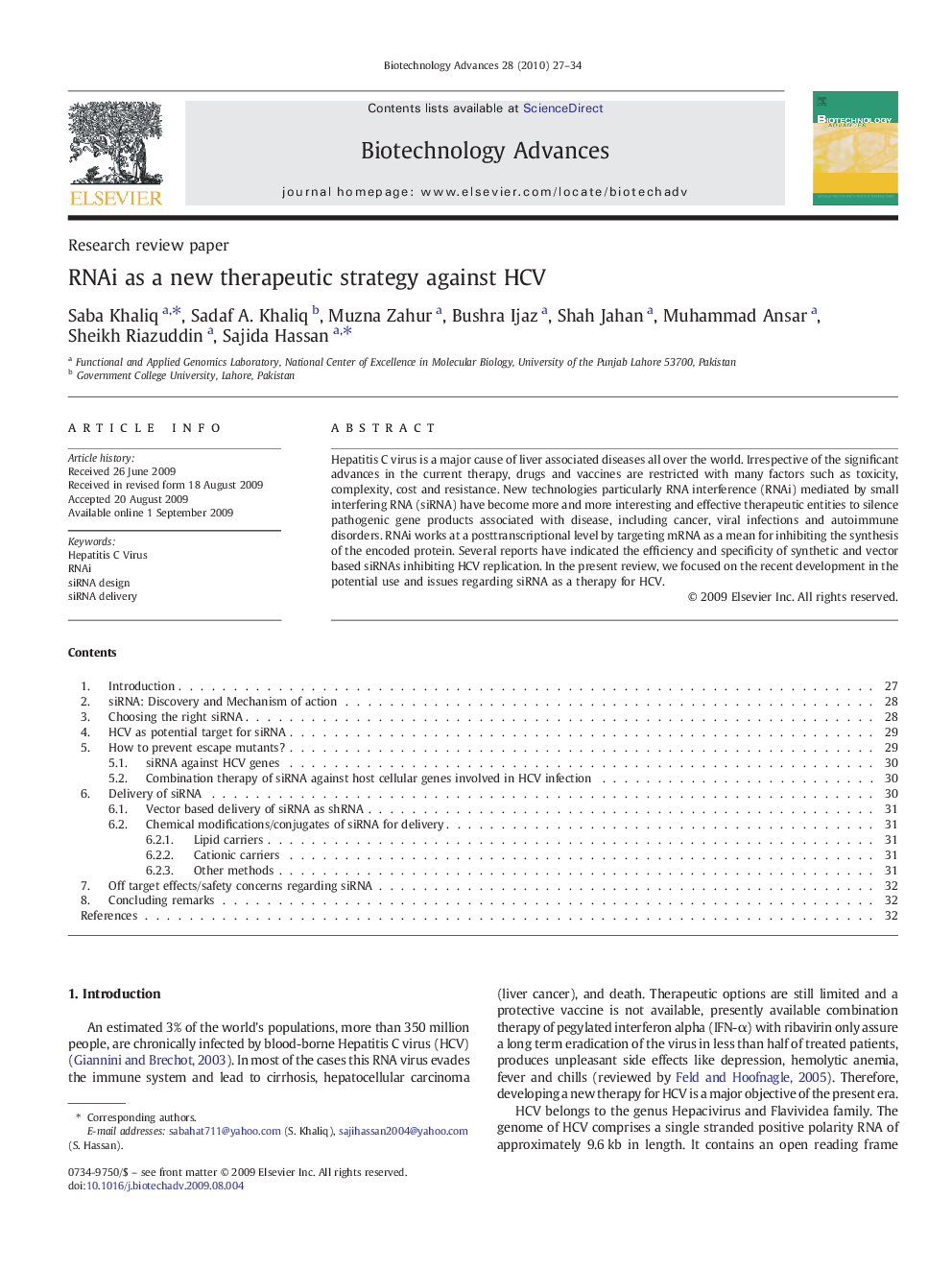| Article ID | Journal | Published Year | Pages | File Type |
|---|---|---|---|---|
| 14756 | Biotechnology Advances | 2010 | 8 Pages |
Hepatitis C virus is a major cause of liver associated diseases all over the world. Irrespective of the significant advances in the current therapy, drugs and vaccines are restricted with many factors such as toxicity, complexity, cost and resistance. New technologies particularly RNA interference (RNAi) mediated by small interfering RNA (siRNA) have become more and more interesting and effective therapeutic entities to silence pathogenic gene products associated with disease, including cancer, viral infections and autoimmune disorders. RNAi works at a posttranscriptional level by targeting mRNA as a mean for inhibiting the synthesis of the encoded protein. Several reports have indicated the efficiency and specificity of synthetic and vector based siRNAs inhibiting HCV replication. In the present review, we focused on the recent development in the potential use and issues regarding siRNA as a therapy for HCV.
